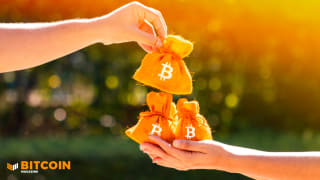
In mid-March, leaders from BitKan, one of China’s oldest Bitcoin businesses, made the trek to Tokyo, Japan. The occasion? A historic Meetup gathering of the Asian-Pacific Bitcoin community.
As a part of the trip, the BitKan leadership team decided to engage in a grand experiment of sorts, namely, exploring the practical day-to-day use of bitcoin. With 13.62 million people, Tokyo is one of the most densely populated, urbanized cities in the world offering a formidable challenge for this ambitious endeavor.
For 72 hours, the BitKan team roamed Japan’s capital city with their BitKan mobile app in search of locales to spend their bitcoin. Ruby Chen, marketing director for BitKan, led this expedition, providing video narration of the experience.
Here is a brief breakdown of their series of discoveries:
Day One
The first stop for BitKan was the Hackers Bar in Roppongi, Toyko, a place that accepts bitcoin. Amid a cold, rainy day, the team arrived at this popular spot after struggling for an hour to locate it. Unfortunately they discovered that the place was closed. Promising to return, the team then set out to find another spot that accepted bitcoin.. This time it was a Mexican-style restaurant, where they sat and had a brief meal. Due to a machine error, the restaurant staff was unable to complete the payment in bitcoin.
Later that evening the BitKan contingent returned to Hackers Bar. This time they were able to successfully purchase food and drinks, utilizing the BitKan mobile phone app to scan the QR code on a tablet at the restaurant. Hacker’s accepts bitcoin through Coincheck, one of Asia’s largest Bitcoin and digital currency exchanges.
The manager at the bar, who has a friend that works at Coincheck, said that it does not generally attract many bitcoin users. Typically, they only see one visitor a month that wants to use it, he noted. While touting the convenience of Bitcoin in terms of its use and trade in real time, he expressed reservations about it, calling it “dangerous and hackable because it’s not physical.”
Day Two
On the itinerary for the second day was a visit to the offices of Roger Ver, founder of Bitcoin.com. Ver mentioned to the BitKan group that use of Bitcoin in Tokyo “while a little difficult [at present], is getting easier and easier by the month.” He noted that there are lots of businesses in Tokyo working to make Bitcoin easier for people to use, citing some landlords that accept bitcoin, hotels stays via Expedia.com as well as a number of restaurants that now accept it.
With some new insights from Ver in hand, the next stop for the BitKan team was a Family Mart, a local convenience grocery store, for some breakfast. When the store owner was asked at checkout about bitcoin acceptance, he declined to discuss it. He also asked that the live camera that was being used to film the exchange be turned off.
Scurrying off, the next stop was a bitcoin-friendly sushi restaurant located in Ginza, Tokyo. After a meal of sushi, sashimi and salmon, Chen paid for the meal in bitcoin.
Day Three
On the third day, Chen visited a Sensoji temple, in search of a place to rent a kimono. She ventured into a local store where the owner acknowledges that he indeed does accept bitcoin. Chen found the kimono she wanted to purchase and took it to check out. Then things became a bit awkward as the owner went to calculate the bitcoin equivalent price on a calculator. Chen gasped when the store owner writes down “0.5 BTC” on a sheet of paper (roughly equivalent to $550 at the time of this writing). Realizing that this must be incorrect , he recalculated the price as 0.05 BTC and completed the purchase for her.
Chen, on reflecting on the position Bitcoin holds in terms of its practical use, told Chinese media: “I have tried to use Bitcoin [in Japan] on many occasions. It is actually very hard if you only have Bitcoin, especially if you just want to do small transactions like exchanging your bitcoin into yen to take the metro. For sure, the infrastructure is not yet fully prepared to make Bitcoin payment ubiquitously available.”
She did acknowledge that the atmosphere in Tokyo is much better, as the team was able to pay local shopkeepers and restaurateurs through the use of the BitKan app. The owners of those restaurants or stores, she noted, accept Bitcoin for various reasons. Some do it because their friends introduced then to the platform, others do it simply because there are customers that have inquired about its acceptance.
Sandy Liang, BitKan’s operations director who was part of the visiting group, said that the “Bitcoin Accepted” sticker visible from some storefronts was an indicator that a business was familiar with the whole payment process. Despite this, she is of the opinion that it’s not very convenient to use Bitcoin in Tokyo as opposed to fiat currency.
“For now, it would be really hard to live there solely on Bitcoin,” Liang said. “But it's getting more and more easy. Fortunately, because of Coinmap, we were able to easily turn Bitcoin to Japanese yen by using a Bitcoin ATM.”
With BitKan’s experiment now in the history books comes the announcement that Japan has decided to recognizes Bitcoin as a legal method of payment.
“I, too, agree that living in Tokyo exclusively on bitcoin would be expensive and difficult,” said Chen. “But now that Japan’s government has officially come out in support of Bitcoin, I believe it will become increasingly popular and easier to use there.”
For a complete video documentary of BitKan’s experiential use of bitcoin in Tokyo, click here.










